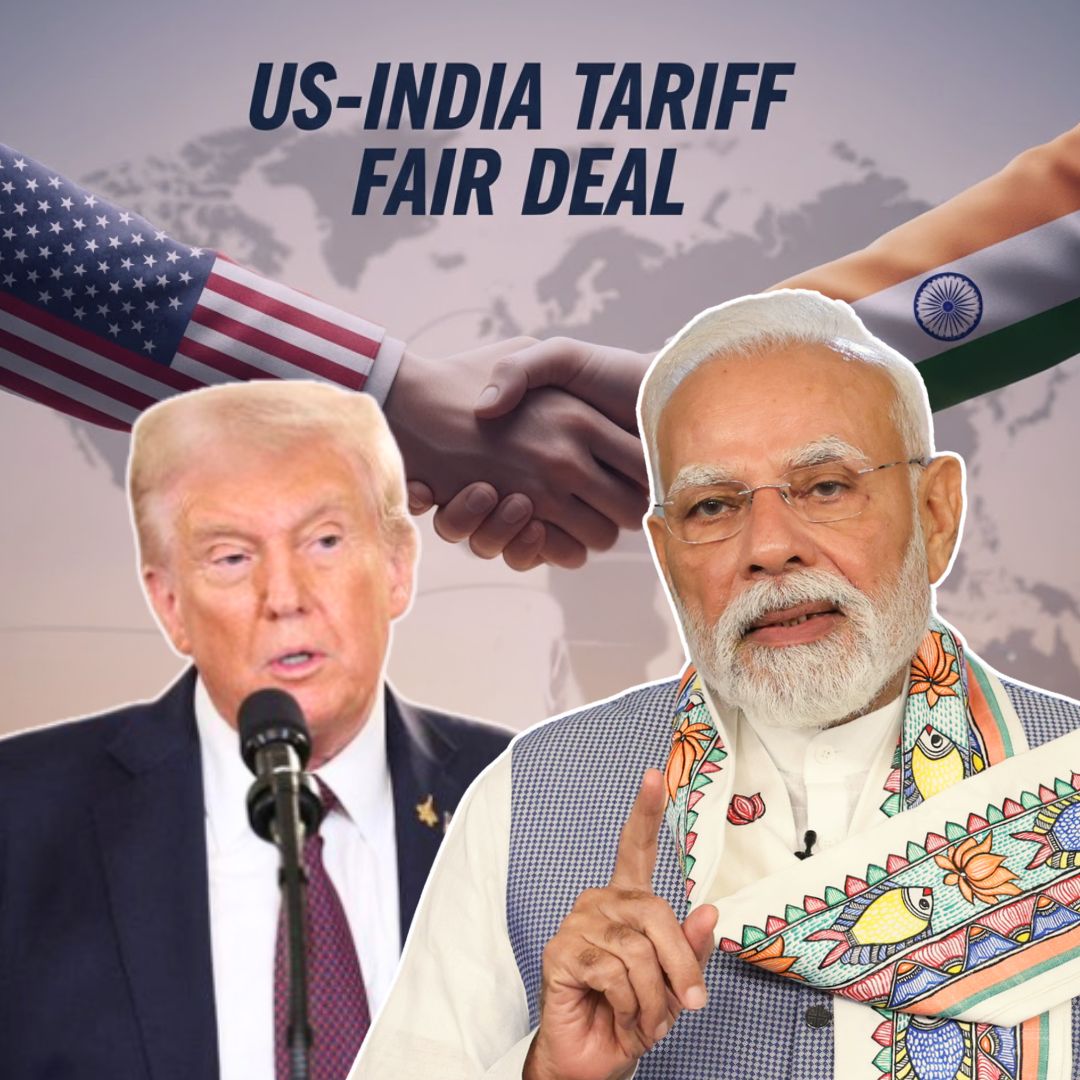India and the United States are actively engaged in high-stakes negotiations to finalise a bilateral trade agreement aimed at significantly boosting trade between the two nations, targeting $500 billion by 2030. The talks come in the shadow of the US imposing punitive tariffs, including a 50% levy on Indian imports and an additional 25% on Russian oil, due to India’s continued purchase of sanctioned Russian crude.
US President Donald Trump stated that tariffs will eventually come down, “will bring tarrifs down”. noting India has “largely stopped” buying Russian oil, and expressed optimism about nearing a “fair deal.” Indian Commerce Minister Piyush Goyal confirmed ongoing discussions while underscoring the complexities and sensitive issues yet to be resolved. Both countries aim for a balanced agreement that protects economic and strategic interests.
Optimism on Fair Deal and Tariff Rollback
At the White House swearing-in ceremony of the new US Ambassador to India, Sergio Gor, President Trump conveyed a more positive tone about the trade talks. “We’re making a deal with India, much different than we had in the past,” he said.
Trump reiterated that tariffs on India are currently “very high” due to Indian oil trade with Russia but confirmed, “They have stopped doing the Russian oil very substantially… at some point, we’re going to be bringing them down.” He acknowledged that India “doesn’t love me right now, but they’ll love us again,” pointing to nearing a deal “that’s good for everybody” with US Treasury Secretary Scott Bessent visibly supporting the efforts.
Trump also lauded India as home to “one of the world’s oldest civilisations” with the “fastest growing middle class,” praising his rapport with Prime Minister Narendra Modi and the ambassador’s role in advancing ties.
Ongoing Talks Amid Tariff Tensions
The tariff dispute between India and the US continues to be a core issue in the negotiations. The Trump administration’s move in mid-2025 to impose a 50% tariff on certain Indian goods, on top of a 25% tariff specifically targeting India’s purchase of Russian oil and military equipment, has sharply escalated trade tensions. President Trump has tied the high tariffs directly to India’s oil trade with Russia, despite India largely reducing its purchases under pressure.
Indian officials remain cautiously optimistic but stressed that important challenges such as agricultural market access, non-tariff barriers, and tariff levels must be carefully addressed. Commerce Minister Piyush Goyal reiterated India’s firm stance on protecting farmers’ welfare and resisting rushed deals, stressing India seeks a long-term, sustainable arrangement.
Complex Trade and Political Background
The strained trade relationship is embedded in broader geopolitical and economic contexts. The US tariffs followed India’s decision to continue importing discounted Russian crude amid the Ukraine conflict, a decision viewed with concern by the US and its allies. India’s agricultural sector, critical for millions of livelihoods, remains a sensitive area, as Washington pushes for greater access while India defends food security and domestic interests.
Despite setbacks, both nations remain committed to negotiation, completing several rounds of talks, including recent discussions in Washington led by top Indian officials. The push for a deal reflects the larger ambition, from leaders Donald Trump and Narendra Modi, to elevate bilateral trade to new heights, while managing political and diplomatic challenges.
The Logical Indian’s Perspective
The Logical Indian views this development as a hopeful sign that dialogue and cooperation can prevail over conflict and economic discord. While national interests and geopolitical realities shape trade policies, it is imperative that negotiations foster mutual respect and empathy.
Constructive engagement between nations is essential for peace and shared prosperity in a complex global landscape. This moment invites reflection on how civil society and common citizens can encourage their governments to prioritise dialogue, fairness, and empathy in international relations.
US President Donald Trump says, "We're making a deal with India, a much different deal than we had in the past. So right now, they don't love me, but they'll love us again. We're getting a fair deal, just a fair trade deal. We had pretty unfair trade deals…But we're getting… pic.twitter.com/rG6yIx3E5q
— Aditya Raj Kaul (@AdityaRajKaul) November 10, 2025











